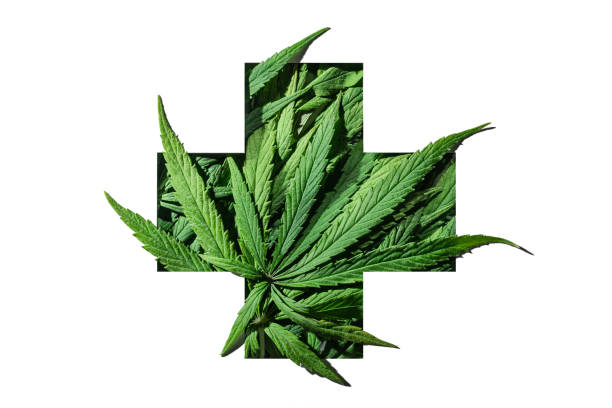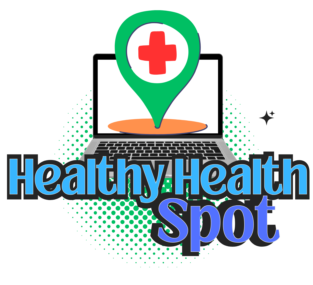
What Is CBD? Unraveling the Hype Behind Wellness’s New Favorite Buzzword
If you’ve been anywhere near the health and wellness world recently, you’ve probably heard someone ask, “What is CBD?” as if it’s the greatest discovery since sliced bread—or maybe avocado toast, depending on your hipster index. Yet, amid all the excitement, you might be wondering if CBD is a magic cure-all or just another fleeting health trend.
Fear not, dear reader! In this post, we’ll take a deep dive into the hilariously intriguing realm of CBD, exploring where it comes from, how it works, why it’s considered the bee’s knees by some, and whether it’s really worth all the buzz (pun intended). Buckle up for a professional—but slightly humorous—journey through everything you need to know so you can confidently answer the question, “What is CBD?”
What is CBD? A Brief Introduction
Before we talk science, benefits, or methods, let’s get our bearings. The question, “What is CBD?” essentially revolves around a naturally occurring compound found in the cannabis plant. Unlike its cousin THC (the one that gets you “elevated” and craving snacks by the bucket), CBD, short for cannabidiol, is non-intoxicating. This means you can consume it without worrying about spontaneously hugging strangers or proclaiming your undying love for pizza at the top of your lungs.
Origins and History
CBD’s backstory is like an underdog sports movie—quietly existing in the shadow of its more notorious cousin THC for decades. In recent years, researchers, doctors, and everyday enthusiasts started giving CBD a second glance. Suddenly, “What is CBD?” became a mainstream question, especially as hemp regulations loosened in many countries. Ancient civilizations (think old-school Egyptians or Chinese dynasties) were already using cannabis plants for medicinal purposes, possibly without even realizing why it worked. Fast forward to the modern era, and we’re not only harnessing CBD’s potential but also studying it with microscopes to figure out what makes it tick.
What is CBD? The Science
Whenever someone utters, “What is CBD?”, you can think of this as a question about biology as much as it is about a fancy plant extract. All mammals—including humans, dogs, cats, and presumably the occasional cameo of your pet hamster—have what’s called an endocannabinoid system (ECS). No, it’s not a secret society; it’s a regulatory network in our bodies designed to maintain balance in processes like mood, sleep, appetite, and even immune response.
The Endocannabinoid System (ECS)
The ECS is like the project manager of your body, making sure everything runs smoothly. It consists of endocannabinoids (molecules you produce yourself), receptors (like little docking stations scattered throughout your body), and enzymes (the cleanup crew). When CBD comes along, it doesn’t latch onto the receptor sites in the same direct way THC does. Instead, it’s more of a subtle manager, influencing the entire system to function more effectively. This indirect approach is why CBD tends not to produce the mind-altering effects we associate with THC.
Brain Chemistry and Beyond
One reason “What is CBD?” generates so much interest is due to its potential influence on neurotransmitters—those chemical messengers in the brain that can impact how we feel. Research suggests CBD may help manage stress responses and promote relaxation without the sedation or euphoria linked to THC. So, if you’ve ever found yourself wanting to feel calm without transforming into a giggling couch potato, CBD might be worth exploring.
What is CBD? Potential Benefits
At this point, you might be itching to know what actual benefits CBD brings to the table. Grab your metaphorical notepad, because the list is continually growing, with research ongoing and new findings emerging year by year. When people ask, “What is CBD?”, they often follow it up with something like: “And is it actually good for me, or is this hype?” Let’s look at a few commonly cited benefits.
Stress and Anxiety Relief
One of the biggest reasons people turn to CBD is to support stress management. Ever have one of those days where you drop your coffee, can’t find your keys, and later realize your shirt has been inside-out all morning? CBD won’t stop your coffee cup from spontaneously leaping from your hand, but it may help you keep your cool when life’s tiny disasters strike. Studies suggest that CBD may bolster feelings of relaxation, potentially making you less likely to snap at your officemates—or your cat.
Sleep and Restfulness
Struggling with getting enough Z’s? Another reason folks ask “What is CBD?” is because they’ve heard it might support better sleep quality. By promoting relaxation and possibly regulating stress hormones, CBD could help you catch those elusive winks without the groggy morning hangover often associated with over-the-counter sleep aids.
Pain and Inflammation Management
CBD’s potential for aiding with physical discomfort is another hot topic. By interacting with receptors that govern pain and inflammation, CBD might help take the edge off, whether you’re dealing with sore muscles from an overzealous workout or just the wear and tear of adulting. While more research is needed to confirm specific claims, anecdotal stories abound of people finding relief.
Supporting Overall Wellness
As a “wellness multitasker,” CBD is thought to support overall balance in body and mind. Whether it’s easing tension, promoting mental clarity, or working in tandem with other lifestyle changes like exercise and a balanced diet, the concept is to help your body function at its best. Obviously, it’s not a miracle worker—CBD can’t pay your bills or do your taxes—but it can potentially help you face life’s challenges with a bit more composure.

What is CBD? Methods of Use
Now that you have a grasp on the big question, “What is CBD?“, let’s talk delivery systems. Because let’s be honest: in the 21st century, it’s not enough to just have a beneficial compound. We also want to consume it in ways that fit our lifestyle—and taste buds.
Tinctures and Oils
Tinctures (fancy word for an oil-based extract) are one of the most common ways to take CBD. Typically placed under your tongue, the oil is absorbed quickly, offering relatively fast results. It might take a bit of practice to hold the oil under your tongue for 30-60 seconds before swallowing—kind of like that awkward moment you swish mouthwash in front of the mirror—but many people appreciate the convenience and accurate dosing.
Edibles and Gummies
Because who doesn’t love candy? If you’d rather skip the herbal taste, gummies, chocolates, or other sweet treats come loaded with CBD. The downside? Edibles can take longer to kick in because they go through the digestive system. On the bright side, they offer delicious flavors, and you can discreetly get your daily dose without raising an eyebrow at work.
Topicals and Creams
For localized relief—like your post-gym sore shoulders or the stiff knees you got from dancing the Macarena at that wedding—topical CBD products can be your jam. Creams, lotions, or balms get applied directly to the skin, aiming to target specific areas. It’s like a spa treatment for your muscles.
Capsules and Softgels
If you’re the type who likes to keep things simple, capsules or softgels might be your go-to. You swallow them with water, just like any supplement. The effects may take a bit longer to manifest than oils, but it’s fuss-free, taste-free, and easy to track how much you’ve taken.
Vaping
For those who want near-instant effects, vaping CBD might be the path. Inhaling CBD through a vape pen or vaporizer means it hits your bloodstream quickly via the lungs. However, if you have any respiratory issues or concerns, it’s a good idea to consult a healthcare professional before hopping on the vape train.
What is CBD? Summing It All Up
We’ve trekked through the definitions, the science, the methods, and the potential perks. So when you hear someone ask, “What is CBD?” (#15), you can confidently say: it’s a non-intoxicating compound from the cannabis plant that may help promote balance in your body by interacting with the endocannabinoid system. It might alleviate stress, support better sleep, or even help with physical discomforts. And yes, you can find it in everything from gummies to shampoos (seriously, they exist).
A Quick Reality Check
CBD isn’t a magic wand that solves all of life’s problems—your boss might still want that project done by Friday, and your kids might still ask for help with math homework at 9 p.m. But used wisely, CBD could potentially smooth out a few of life’s rougher edges, giving you just a little extra pep in your step (and calm in your soul).
Conclusion & Invitation: What is CBD?
At the end of the day, as you continue exploring the question, “What is CBD?” remember that Healthy Health Spot stands ready with the best information on health. They stay on top of the latest research, trends, and tips, making them a go-to resource for all your well-being queries. Now we’d love to hear from you: Have you tried CBD? What forms do you find most convenient, and do you have any hilarious or enlightening stories to share? Drop your comments and opinions below—you never know who you might help or amuse with your insights!
